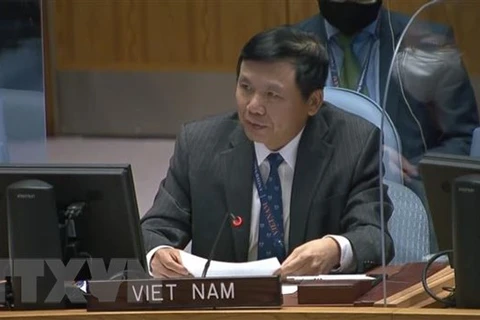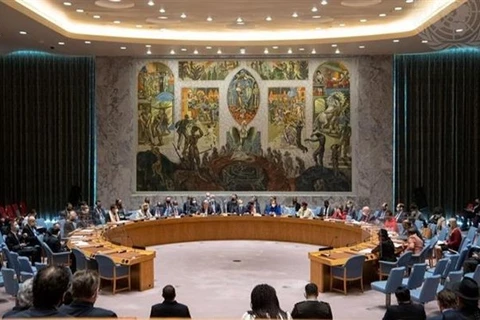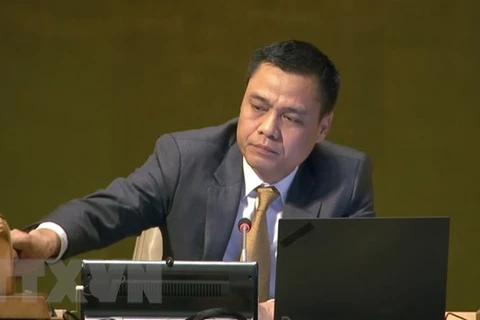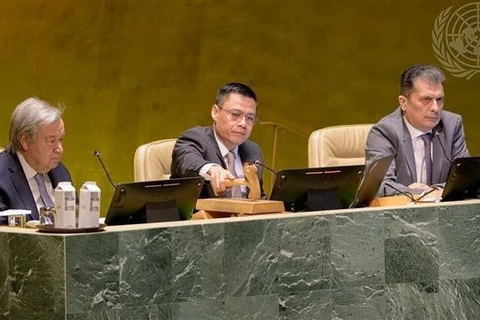 Minister Counsellor Le Thi Minh Thoa, Deputy Permanent Representative of Vietnam to the UN, speaks at the session. (Photo: VNA)
Minister Counsellor Le Thi Minh Thoa, Deputy Permanent Representative of Vietnam to the UN, speaks at the session. (Photo: VNA) Speaking at the UN General Assembly’s plenary session to discuss an annual report by the ICJ in New York on November 6, the representative affirmed that the diverse caseload undertaken by the ICJ shows the universality and general jurisdiction of the court.
She emphasised that another major function of the ICJ is to provide advisory opinions according to the provisions of the UN Charter to clarify legal aspects related to major issues of the international community’s concerns, including climate change, adding Vietnam believes that these processes will have a profound impact on the interpretation of environmental obligations under international law.
Thoa underlined that the ICJ needs to clarify the principle of “common but distinct responsibilities” as well as the obligation to cooperate, including through the transfer of green technology, and liability in case of breach of those obligations. The diplomat emphasised that ICJ's advisory opinions will contribute to strengthening common efforts to respond to climate change.
On March 29, the UN General Assembly unanimously passed a resolution requesting the ICJ to provide advisory opinions on states’ responsibilities on climate change. The resolution was submitted at the initiative of Vanuatu and the Core Group of 18 countries, including Vietnam. The group wants to take advantage of the ICJ's role to clarify the obligations of countries in causing negative consequences due to climate change for many countries, especially hardest hit ones.
At the session, ICJ President Joan Donoghue said that this year, the court has issued four judgments and 20 procedural orders, and considered two requests for advisory opinions. The ICJ is handling nearly 20 cases related to many areas of international law such as maritime delimitation, territorial borders, diplomatic relations, human rights, and environment. In addition, it has also continued to review procedures and working methods, noting the promulgation of a number of amendments that incorporate gender issues into the court's rules.
Representatives from nearly 100 participating countries hailed the court’s contributions to international peace and security as well as the settlement of disputes among countries, along with its advisory opinions on the legal aspects of many issues of international concern, including those on the occupied Palestinian territory and climate change./.
VNA























